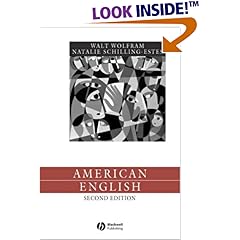This blog contains the description on the phenomena in language, society, and culture
Showing posts with label Dialect. Show all posts
Showing posts with label Dialect. Show all posts
Saturday, August 23, 2008
The Dialect of Modernism: Race, Language, and Twentieth-Century Literature (Race and American Culture)
Description
The Dialect of Modernism uncovers the crucial role of racial masquerade and linguistic imitation in the emergence of literary modernism.
Rebelling against the standard language, and literature written in it, modernists, such as Joseph Conrad, Gertrude Stein, T.S. Eliot, Ezra Pound, and William Carlos Williams reimagined themselves as racial aliens and mimicked the strategies of dialect speakers in their work. In doing so, they made possible the most radical representational strategies of modern literature, which emerged from their attack on the privilege of standard language.
At the same time, however, another movement, identified with Harlem, was struggling to free itself from the very dialect the modernists appropriated, at least as it had been rendered by two generations of white dialect writers. For writers such as Claude McKay, Jean Toomer, and Zora Neale Hurston, this dialect became a barrier as rigid as the standard language itself.
Thus, the two modern movements, which arrived simultaneously in 1922, were linked and divided by their different stakes in the same language. In The Dialect of Modernism, Michael North shows, through biographical and historical investigation, and through careful readings of major literary works, that however different they were, the two movements are inextricably connected, and thus, cannot be considered in isolation. Each was marked, for good and bad, by the other.
Review
"All readers...will be hard-pressed to deny North's revisionary insight for twentieth-century literary studies: black dialect as performance is an unrecognized bridge between modernism and the Harlem Renaissance. With North's generative paradigm, we can examine the movements together in new ways."--American Literature
"[A] long overdue study....This may be the most significant rereading of traditional American modernists in years."--South Atlantic Review
"Michael North's new book makes an indispensable contribution to the study of transatlantic modernism....Of the many recent attempts to historicize modernism, North's stands out as what will surely become an enduring model of literary and sociological analysis."--Novel
American English: Dialects and Variation (Language in Society)
Review
“This book has become a staple in the study and instruction of American English… The second edition provides the same balance of detail, clarity, breadth and sophistication offered by the first edition, but with an improved organization and up-to-date information. It is clear that the authors took seriously the task of revising and updating this new edition so that its users could enjoy the maximum benefits of its structure and contents. They will be pleased to know that their efforts were not in vain. The book will undoubtedly continue to be used as one of the key texts in the instruction of American dialects for many years to come.” Journal of Sociolinguistics
"This is an indispensable book, not just for students but for anyone who wants to know how the English language varies in the United States and how this variation has been studied… It is comprehensive, comprehensible and dense with detail." Language in Society (of the previous edition)
"The strengths of the book include its style and the authors’ consideration of how the book might actually be used as a text… the chapters are divided into subsections with helpful headings; exercises calling for creative responses by students are scattered throughout… each chapter ends with a short annotated bibliography for further readings." Language (of the previous edition)
Description
This book provides a very readable, up-to-date description of language variation in American English, covering regional, ethnic, and gender-based differences.
* contains new chapters on social and ethnic dialects, including a separate chapter on African American English and more comprehensive discussions of Latino, Native American, Cajun English, and other varieties,
* includes samples from a wider array of US regions
* features updated chapters as well as pedagogy such as new exercises, a phonetic symbols key, and a section on the notion of speech community
* accessibly written for the wide variety of students that enrol in a course on dialects, ranging from students with no background in linguistics to those who may wish to specialize in sociolinguistics
Subscribe to:
Posts (Atom)

